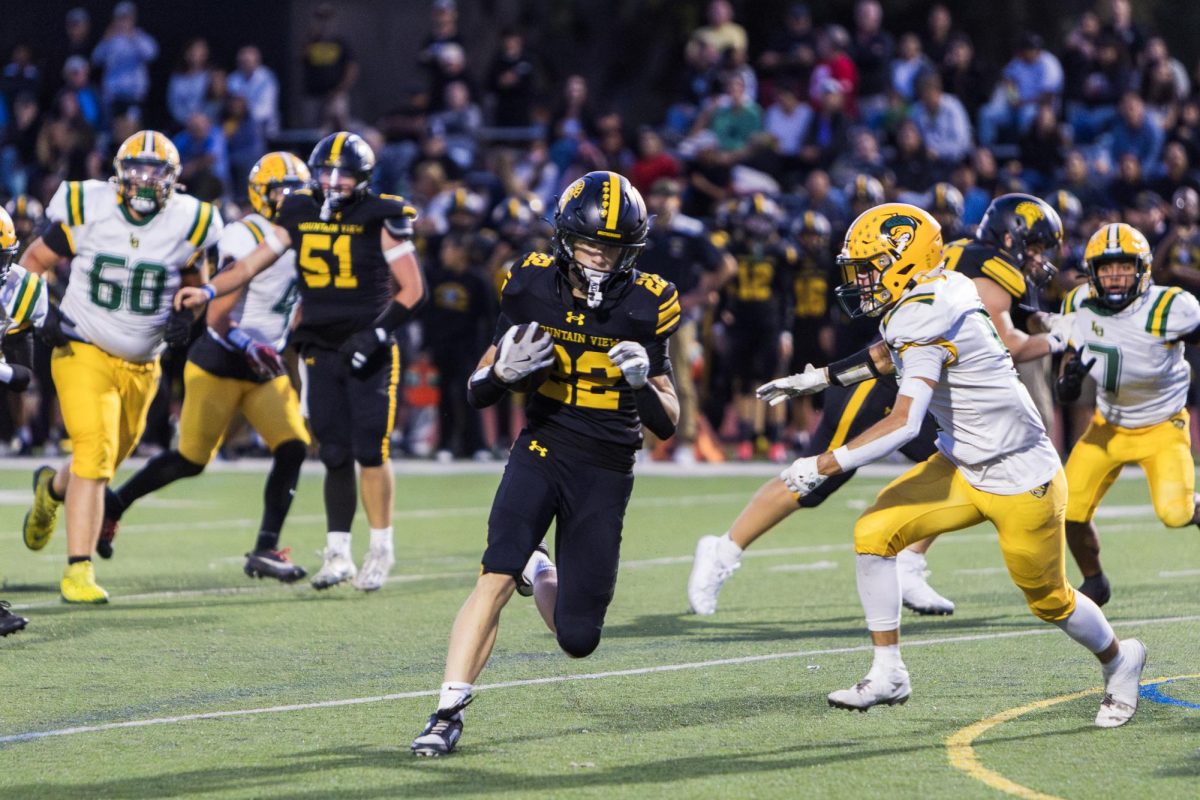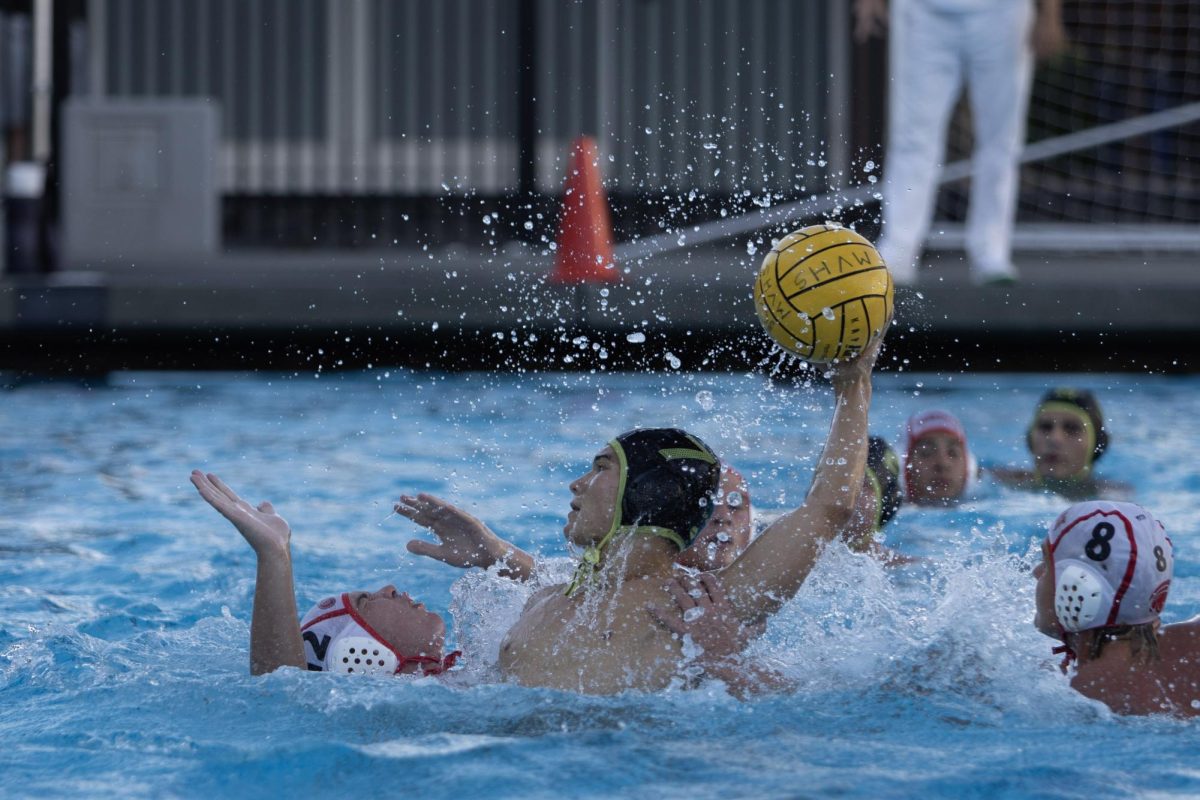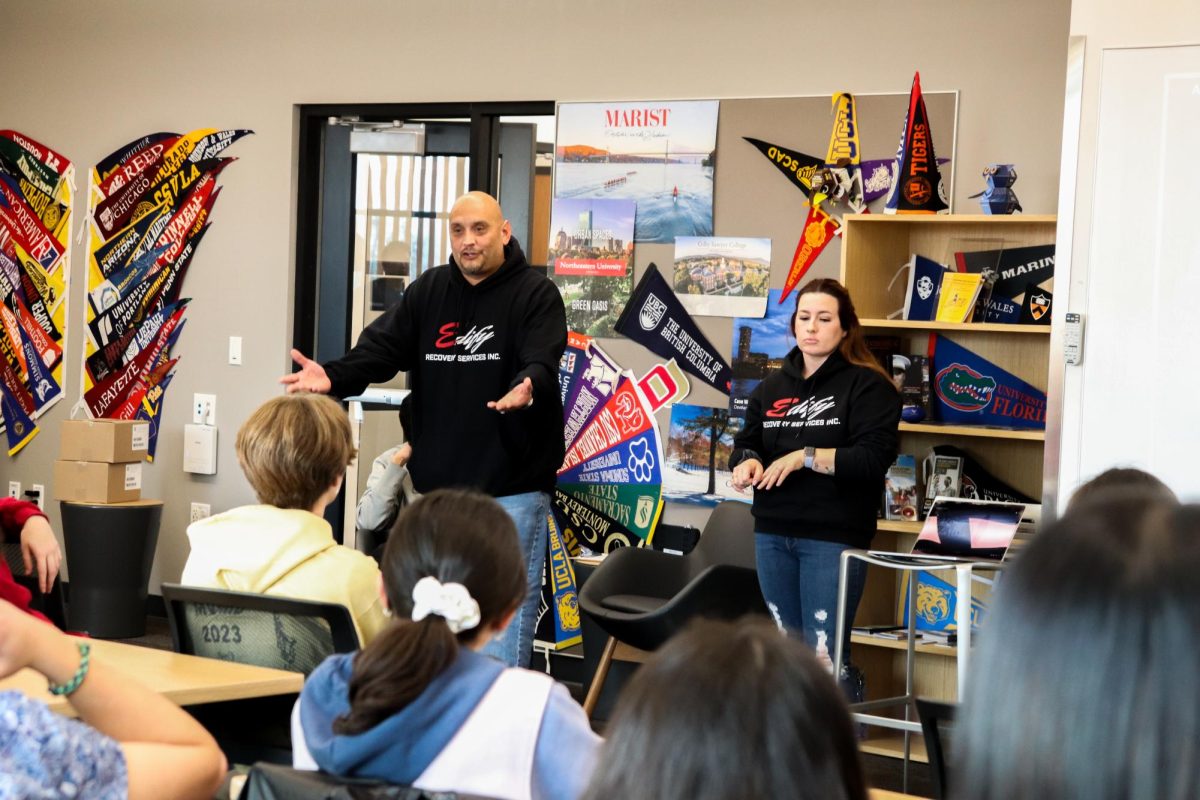MVHS collaborated with Edify Recovery Services to host Narcan administration training for students after school last Monday.
Narcan — a brand name of the medication Naloxone — rapidly reverses an opioid overdose, according to the National Institute on Drug Abuse.
At the training, over 50 MVHS students learned how to use Narcan nasal spray in the situation of an opioid overdose. Each student in attendance received a package with two doses of Narcan.
This event follows the Fentanyl Awareness Assembly that took place last semester, which educated students on fentanyl overdose and reversal techniques, as well as the far-reaching impact of fentanyl in our community, assistant principal Marti McGuirk said.
After the assembly, McGuirk said there was an interest expressed by students and staff to have access to reversal medication such as Narcan.
She worked with district Wellness Coordinator William Blair to contact Edify, and together, they planned to put on a presentation, host a training of the administration of Narcan, and ensure the delivery of 200 Narcan kits to MVHS.
There are over 100 kits left over, and McGuirk said MVHS plans on hosting additional training and distribution events in the upcoming months.
“My fundamental responsibility as an educator and as a human at this school is to keep other people safe,” McGuirk said. “So if we’re able to provide training like these and [ensure] access to Narcan for students that they can use to save a life, that is hugely important and something I’m super passionate about.”
McGuirk said that the target audience is anyone who may come in contact with someone overdosing, as students can’t predict “when and where it will come up.”
“There have been losses in our community that we feel super, super deeply for and even for kids that I don’t know that have been lost across the county,” McGuirk said. “It is super, super personal for me, not just as an administrator and someone who cares about kids, but as a parent, in the community too.”

The training was led by Edify founder and CEO Arthur Olivo and Shannon Moore, the clinical director at Edify.
Olivo said he has worked in the substance abuse and mental health industry for 10 years and currently works in behavioral health at the Santa Clara County juvenile hall. He said he attended Saint Francis High School in his youth and struggled with his own drug addiction for nearly 30 years, which contributed to his interest in helping teenagers with substance abuse.
“I have faced numerous unfavorable outcomes and lost my best friend to an overdose of heroin so that’s what prompted me to work in this field,” Olivo said. “[My goal is to] bring awareness to our youth, to reduce overdoses, and to hopefully someday have no substance use. [As well as to] reduce the recidivism of our penal system in California for kids coming to juvenile hall.”
Moore said she struggled with drug addiction in college and is now coming up on eight years clean, and that her journey sparked the urge to work at Edify. After receiving treatment, she returned to San Jose State University and received her bachelor’s degree in psychology.
“My experience made me want to help other people with this experience and the youth especially with fentanyl and what’s happening in our communities,” Moore said. “I think it’s just really, really important to educate the youth.”
Moore said Edify has been working with high schools to train the youth on overdose reversals, but they want to expand into the greater community and host events with Narcan distribution for more individuals.
“Addicts can’t get clean unless they’re alive,” Moore said. “These life saving measures are super important to know about and to be trained in so that we can be saving the people that are using now, so that they can find recovery later.”
McGuirk said that at its core, our community needs to care about each other, show up for one other, and should look out for everyone.
“Preparing yourself and arming yourself with the information and the tools to keep the people that you love and care about safe is one of the most important things you can do as a community member,” McGuirk said. “So the more people that we’re able to train and to reach and to equip to save lives, I could not ask for anything more.”

































